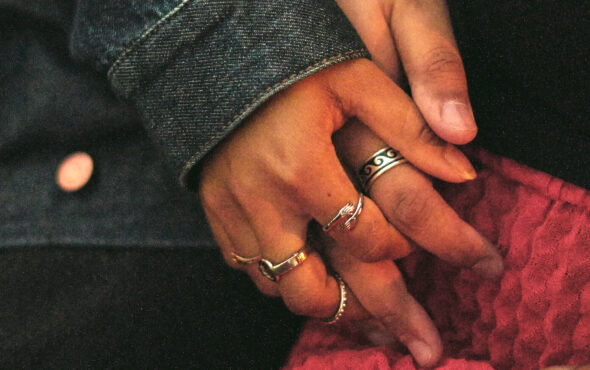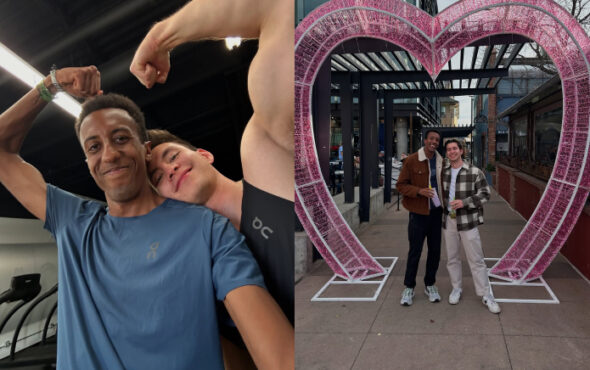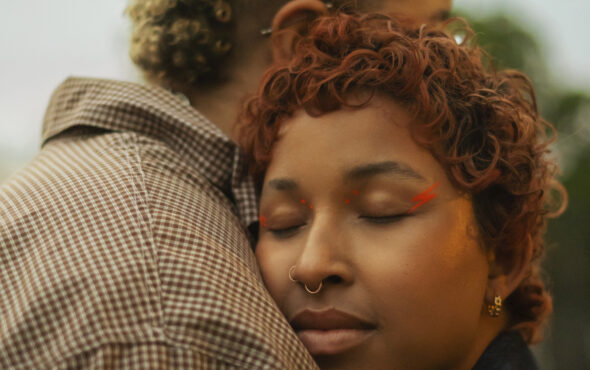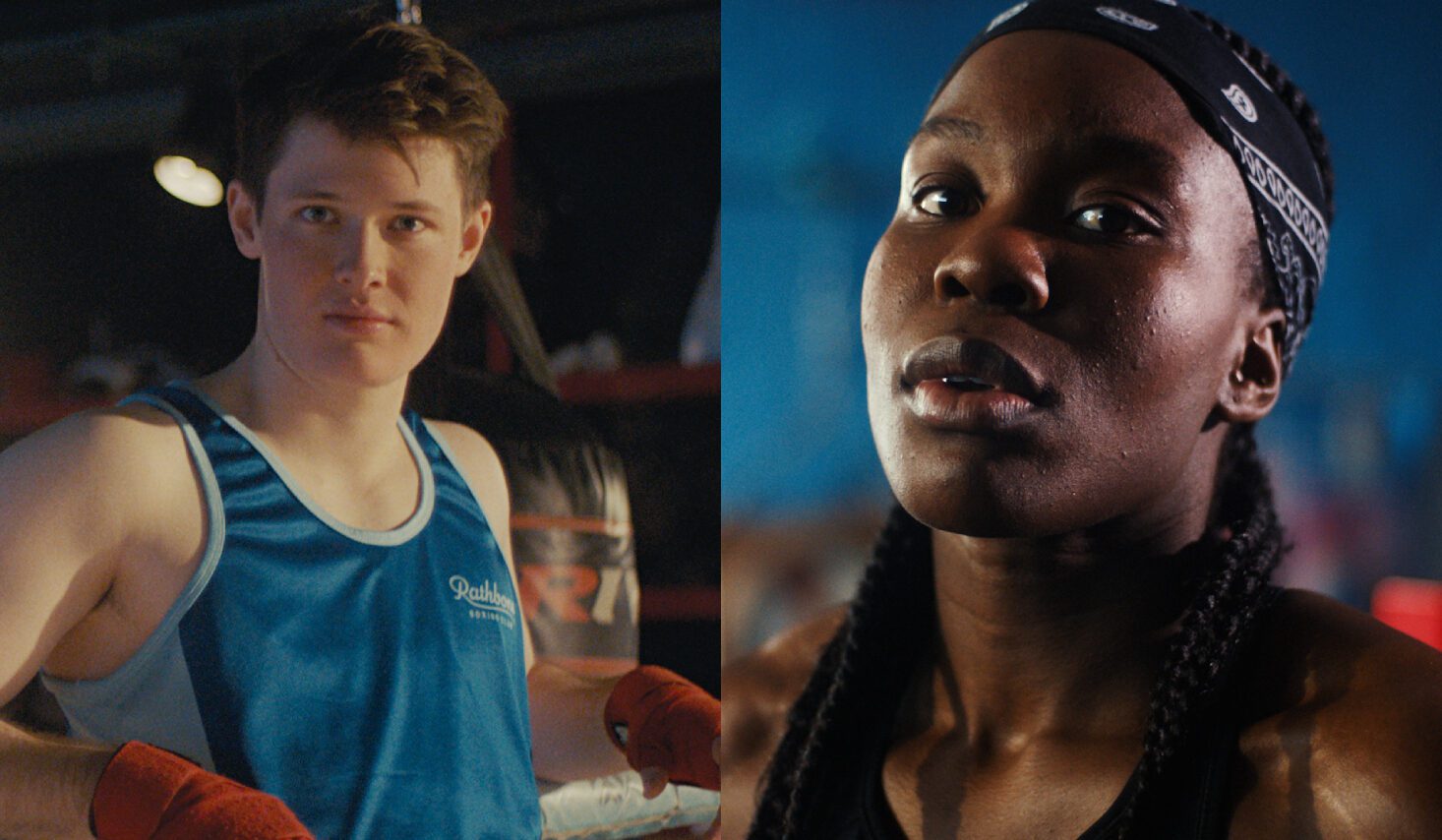
Sports should be an industry of community and camaraderie. 62% of trans people have never participated in sports, other than mandatory physical education in school, according to an LBTI study. Elsewhere, 82% of LGBTQ+ people have witnessed homophobic and transphobic language in sports within the last 12 months. These stats give an insight into some of the challenges the LGBTQ+ community face when trying to access sports, which is why GAY TIMES has partnered with Voltarol and Channel 4. We spoke with queer British-Zambian boxer Oriance Lungu and trans boxer Jill LeFlour to find out more about their experiences in and outside of competitive sporting environments.
Oriance Lungu is a Hackney-based boxer, coach and winner of the Champion title at the 2019 England Boxing National Elite Championships. The 32-year-old grew up in East London with an ambition to join the sporting world. After years of training, the amateur boxer credits boxing – and sports – for boosting her confidence: “The confidence has definitely changed in me and that’s something that’s come from boxing.” Thinking back on when she joined the sport, Oriance recalls joining the activity during a time when “when women were already starting to compete”.
The East London athlete was inspired by the likes of outstanding performers such as Nicola Adams, Katie Taylor and Claressa Shields. Aspirationally following in their steps, Oriance joined Haringey Boxing Club – a training ground infamously known for Nicola Adams’ attendance – as a regular. When Oriance first signed up, she noticed there were very few women training there. Now, she notes, there are “loads”of women at the club. “I think that’s been a massive change,” she explains. “It’s important to have female coaches to help guide the female boxers that are coming through the game now. There are definitely a lot more women in the sport which is great.” Oriance practises boxing daily and teaches a mix of LGBTQ+ students and others to keep the spirit of the sport moving.
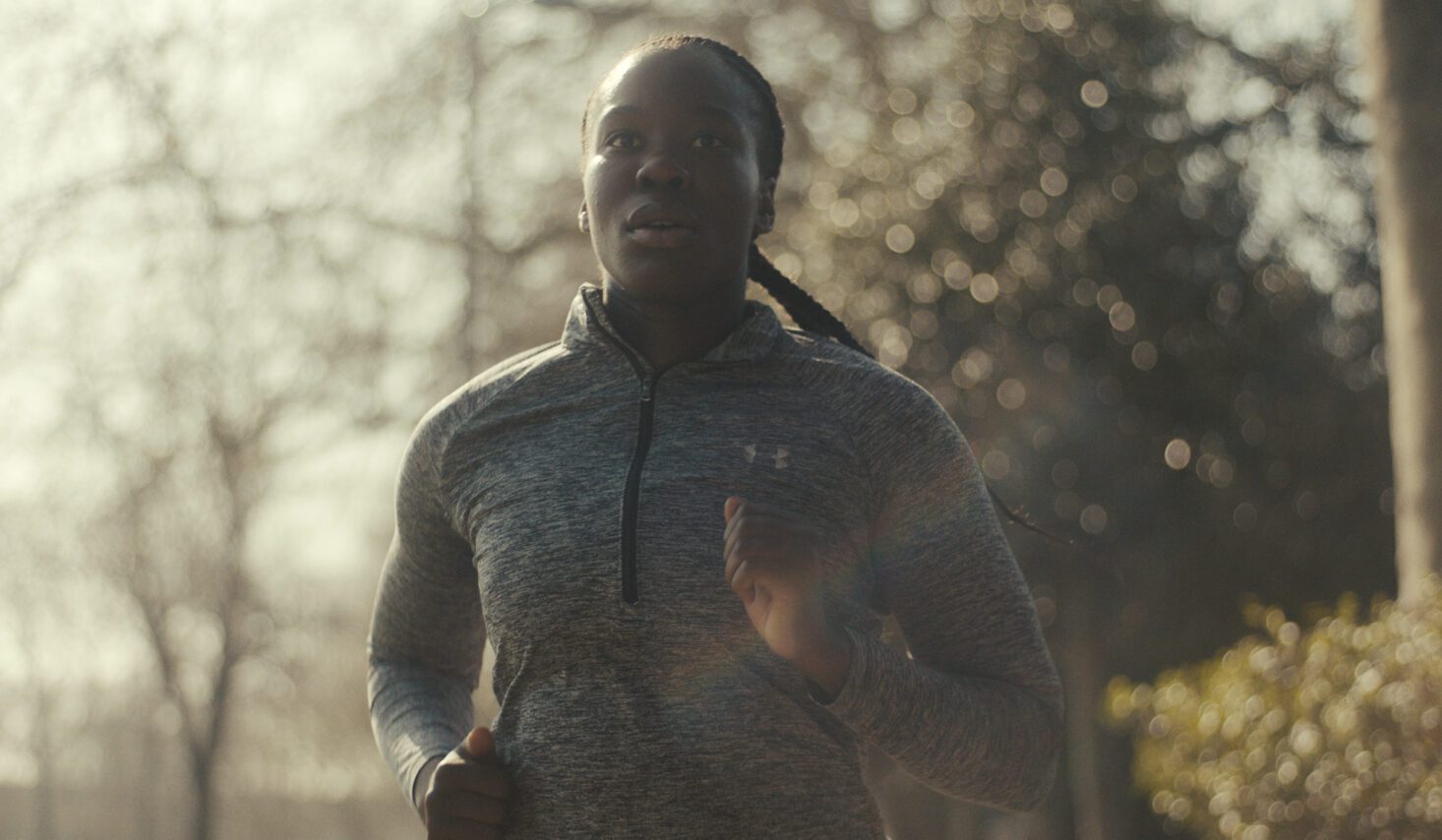
For Oriance, representation within the sports scene is vital to engage and spotlight the next generation of sportspeople. “I didn’t know any people who are openly gay so it was always a part of me that I’d kept to myself,” she says. “But in boxing, I’ve met so many different people from so many different backgrounds.” The East London boxer hopes for her personal and sporting identity to co-exist without being tokenised. “I want to be seen as a boxer, as an athlete,” Oriance tells GAY TIMES. “My sexual orientation, my gender, and my race have absolutely no bearing on my ability to compete or play in the sport. I want to be seen as an athlete.”
When Jill first started boxing, he hadn’t come out. Fearing he would lose the sporting community he had grown to love, Jill continued to attend female-only boxing classes. However, during the pandemic, he transitioned and sought out a trans-friendly gym. Now, the trans boxer is passionate about inclusivity and LGBTQ+ safe spaces in sport. Currently, 80% of trans people have witnessed or experienced transphobia in sports, according to Equality Network data. For him, boxing has served as a constructive outlet to challenge himself. Jill joined lessons at Rathbone Boxing Club, Soho, shortly after transitioning. From a young age, the boxer fondly recalls being shuttled to and from training activities. “At some point in high school I was playing five sports competitively, so you can figure how important they were to me,” the boxer explains. Jill considered the undertaking of sport a crucial asset to his upbringing.
As an avid boxer, Jill uses his perspective in the LGBTQ+ sporting community to tackle ongoing homophobia and transphobia in traditional sports spaces. However, as the boxer insists, his identity-defining labels do not impact his ability to succeed and enjoy sports. “As the Olympic Charter puts it: “The practice of sport is a human right.” Instead, Jill believes everyone should be able to get involved in the benefits of sports. This unequivocal faith stems further than his personal input, but stands as a broader mood to the sport, particularly when it comes to younger people. “I can’t imagine what it would have been like to be banned from competing because of something I have no control over, like so many kids in hostile states of the US right now,” Jill reflects. Data collected from an Out on The Fields study revealed that 70% of people believe youth sports is not a safe space for LGBTQ+ people.
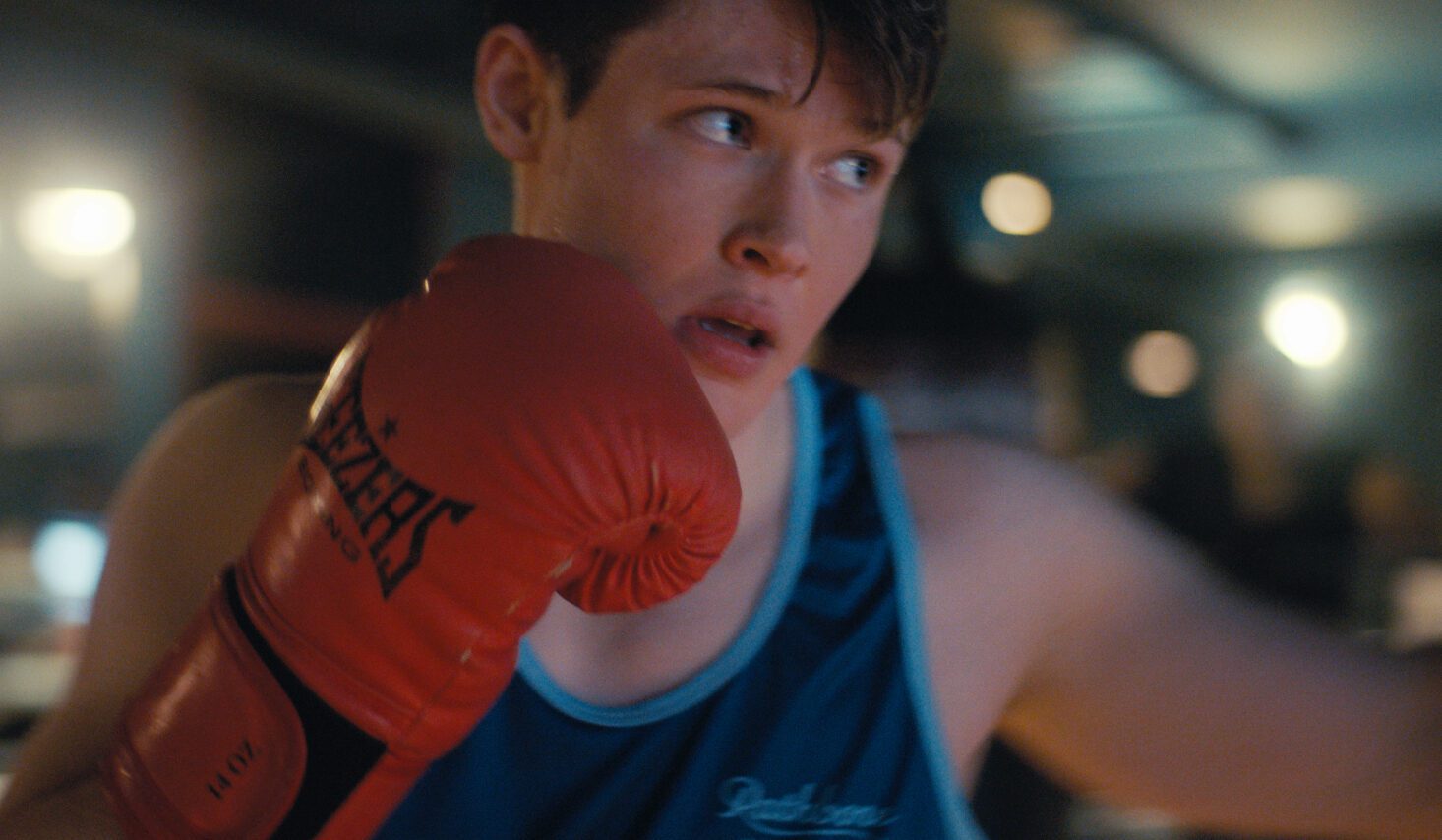
Finding a space of self-acceptance in boxing has been hugely significant for Jill’s journey to being trans. He reflects on seeing Leo Baker, a US pro-skater, wearing a binder in his 2017 My World video and immediately identifying with him. “I saw an androgynous-looking person with short hair riding a skateboard and I went, ‘Wait, that’s me!’ It gave me a lot of hope.” The need for active representation has been a shortcoming that Jill has been all too aware of. Despite being involved in sport, he recalls not being able to see any trans representation unless he directly went looking for it. “People like Chris Mosier and Schuyler Bailar are doing amazing work in this space, but I feel like the wider public has never heard of them,” he tells GAY TIMES. “That’s why I’m open about being trans. I want to be the role model I never had growing up. If even one trans kid reads my story and is inspired to not give up sports, then I’ll have succeeded.”
As part of our GAY TIMES, Voltarol and Channel 4 documentary, we are amplifying marginalised voices from the sporting community. Jill, an openly proud trans sportsman, has found tension between the community and the sporting world. While transgender inclusivity has been largely supported by the wider public, Jill has found it difficult to navigate the animosity coming from sporting boards. Moving forward, Jill hopes there will be greater inclusivity and acceptance of trans people in sporting spaces. “I’m most comfortable in spaces that are openly inclusive. Most gyms will be supportive, as will most people,” he says. “It’s relaxing to realise that a lot of people are just there to get their workout in and don’t really care about you at all.”
Gyms and sporting events have become hotly debated talking points when it comes to trans inclusivity. “I’d like to see less bias and fear-mongering, and more facts and compassion,” Jill tells GAY TIMES. “While the discourse disproportionately targets trans women, trans men and nonbinary people are collateral damage. No one seems to care that we are actual people.” As the aggressive language continues, the resistance is further amplified by anti-trans legislation that prevents aspiring trans athletes from competing in certain competitions. The misconception that trans people will dominate sports overlooks how sporting competitions are regulated to ensure equal advance and equality. As Jill notes, trans people have been able to compete in the Olympics since 2004, yet there remains to be a trans athlete gaining a medal. “Trans women have never broken a world record in the women’s category in any sport, either. That’s hardly the ‘trans domination over women’s sports’ transphobes are desperate to sell you,” Jill says. In light of this, the boxer highlights how far the limitation of being able to compete goes: “My main challenge remains that, under the current rules, I’m not allowed to compete as an amateur boxer in England.”
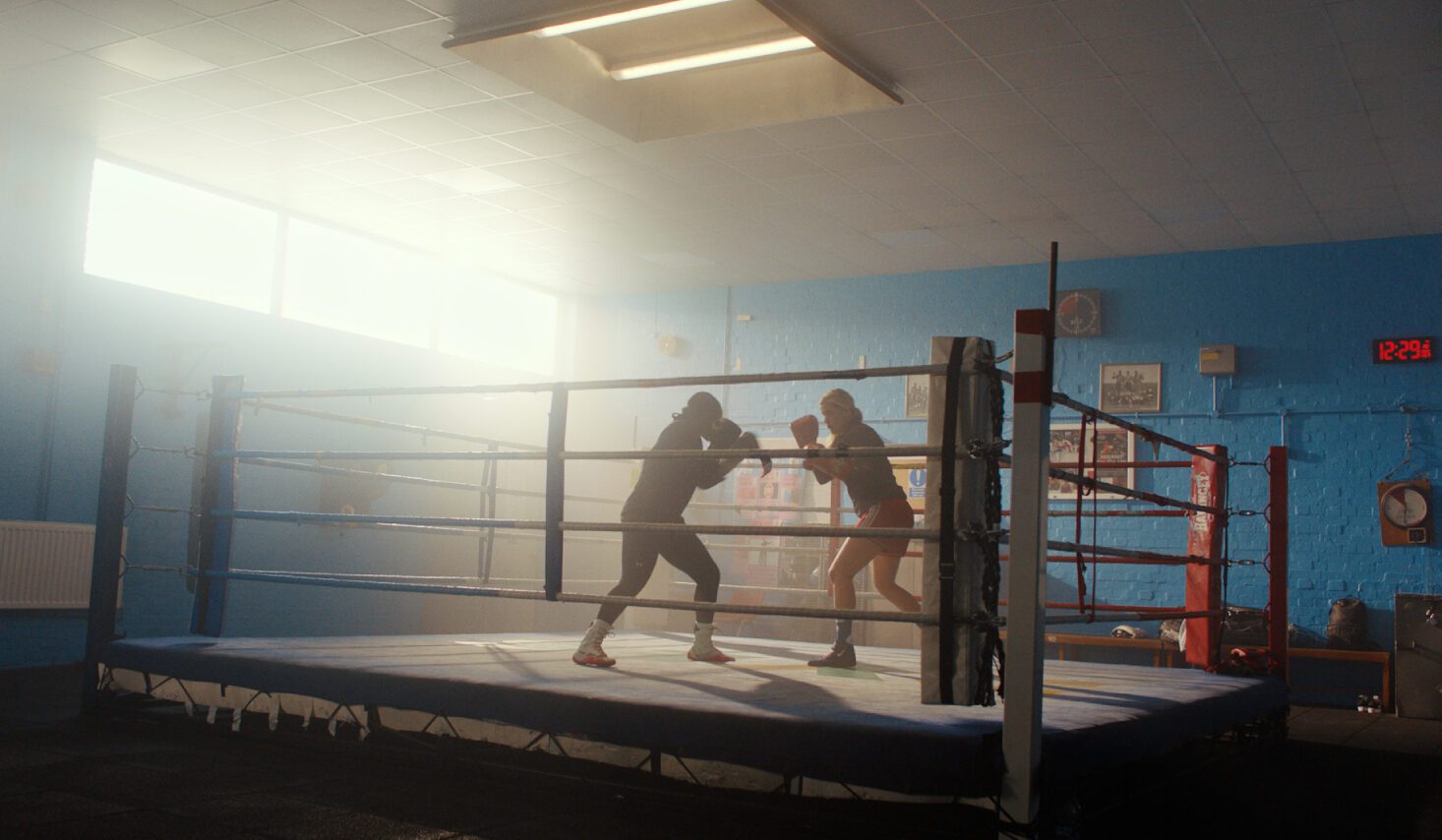
As we continue to fight for an equal playing field, LGBTQ+ people, activists and allies must work together to create an environment where all marginalised identities (both LGBTQ+ and QPOC) can enjoy the sporting activities they love. While LGBTQ+ people are keen to get stuck in sports, much of the community remains sceptical on whether there is a safe space for them to contribute. In fact, 85% of people believe LGBTQ+ people are not safe as spectators at sports events, according to LGBTQ+ In Sport.
Here, at GAY TIMES, we have actively worked to make the sporting world more accessible and inclusive of the LGBTQ+ community. Our long-running partnership with Voltarol has allowed us to platform marginalised voices in the community to open up a conversation around the importance of inclusive and safe spaces for LGBTQ+ people in sports. This year, we’ve teamed up with Voltarol, Channel 4 and Pride Sports to create a multi-platform documentary film that spotlights the importance and joy of movement.
Our partnership will champion LGBTQ+ inclusivity in the industry and improve access to sports for LGBTQ+ people across the world. Our partnership has seen change first-hand. Due to their partnership with GAY TIMES, Voltarol has renewed its donation to Pride Sports – a UK sporting organisation – to improve support and access to the LGBTQ+ community. This money will find new LGBTQ+ spaces for the boxing community, a Sporting Pride Conference, and run new LGBTQ+ boxing taster sessions throughout the summer. These localised initiatives will empower LGBTQ+ people to get involved in sports and strive to stamp out discrimination in the sporting arena. Together, we can work towards a sporting world accepting of all abilities and LGBTQ+ identities.
View this post on Instagram
